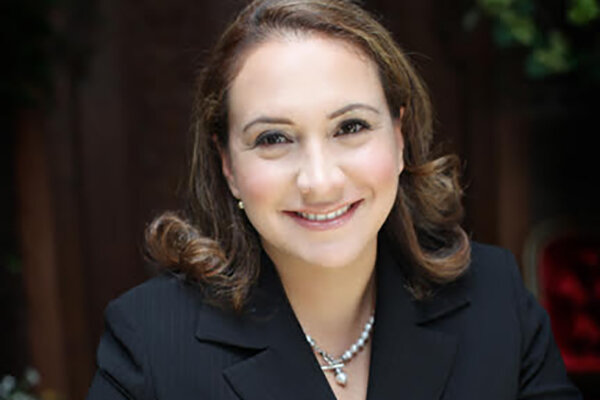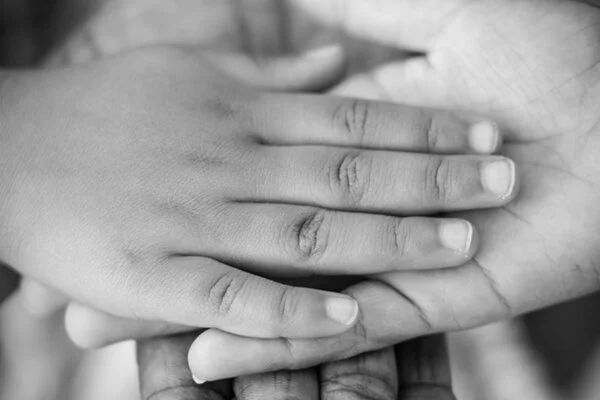On Saturday, May 1st we will continue our series Immigration at the Crossroads. This will be a webinar hosted by Joel Pérez, Interim Executive Director of the IRC. Karen Gonzales author of The God Who Sees: Immigrants, the Bible, and the Journey to Belong will be presenting on the topic Beyond Welcome: Reimagining the Immigration Conversation. You can register for the webinar by using the link below.
The Immigration Resource Center in partnership with Foothill Community Church, Homework House and My Third Place in Azusa will be hosting a DACA Clinic on Saturday, April 24th from 2 - 5pm. Registration is required. You can do so by using the following link DACA CLINIC
If you have any question place call 626.214.5593
We are honored to have Rosa as a part of our team. We share this story with you to highlight the commitment and passion she brings to the IRC. She is a part of a great team that works diligently to service our clients in providing low-cost immigration services.
Throughout 2021, the Immigration Resource Center is partnering with Fellowship Monrovia to present “Immigration at the Crossroads,” an ongoing webinar series about the intersections between faith and immigration. On Saturday, February 6, the series kicked off with “Migration as Grace,” a discussion with Rev. Dr. Robert Chao Romero, a professor of Chicana/o Studies and Asian American Studies at UCLA. Dr. Romero has published numerous books about immigration, race, and religion, including the new Brown Church, and also works as a pastor, attorney, and community organizer.
Romero’s conception of “migration as grace” grew out of his desire to analyze and reflect upon the numerous instances of migration in the Bible. He explained that “from the earliest pages of scripture...to Abraham to Jesus to Moses to the scattering of the early church...migration is everywhere.” When reflecting on these stories, he quickly realized that, by his estimation, the Bible consistently supports a profound idea: that migration serves as a “source of grace,” both to migrants and to the countries that “choose to receive them with biblical hospitality.” He clarified that he thinks about grace in the broadest sense: “love, compassion...kindness, unmerited favor.”
Romero walked through several well-known biblical stories to support this idea of migration as grace. He immediately looked to the Gospels, which briefly chronicle the incident in which Jesus, Mary, and Joseph fled to Egypt to escape persecution. Romero summarized this story as an instance of “God using the migration process to save God as a refugee.” Another prominent example comes from the story of Joseph, in which “God used Joseph, a migrant...to be a source of grace to all of Egypt.” The story sees its central figure forced into migration as a slave, only to save thousands of lives by becoming the pharaoh’s dream interpreter and foreseeing a massive famine.
Romero explained that these are merely the most prominent biblical examples of migration as grace, and that there are numerous other instances that support his interpretation. The speaker said that the word “ger,” meaning immigrant or sojourner, appears 92 times in the Old Testament, and that the ger were excluded from owning land and meaningful participation in the agrarian sector. This meant that, despite their contributions to various societies, the migrant populace was far more vulnerable to hardship –– and Romero explained that “this is the experience of the ger then and now.”
Romero clarified this point by discussing migration as grace in the contemporary world, stating that “undocumented immigrants serve as an important source of grace to the United States through their vast economic contributions in the form of labor and taxes.” He refuted the common claim that undocumented immigrants don’t pay taxes: although many undocumented workers use fake social security numbers, ten percent of their income still goes toward social security, which subsequently caused undocumented people to contribute $240 billion to social security by 2007. Additionally, the United States’ population of 11 million undocumented migrants adds an estimated $400 billion to the national GDP every year. Romero refers to these facts as the “mathematics of injustice”: although migrants already serve the country as economic citizens, there is still a governmental commitment to withholding full political citizenship.
Although the system remains unjust, Romero still has hope for the future, because “hope happens when we come together as the body of Christ.” He encourages everyone to support compassionate, nonpartisan immigration reform, and to support new and existing DACA applicants. “I’m not saying be a Democrat, be a Republican...I’m talking about biblical principles. Migration as grace is a very clear biblical principle that we must unite around,” concluded Romero.
Click here to watch the full webinar.
“Immigration at the Crossroads” will continue with a discussion with Karen Gonzalez, author of The God Who Sees on May 1. You can buy Dr. Romero’s book Brown Church here.
For more information, email jean@ircsgv.org.
On Saturday, February 6th we will be beggening our series entitled “Immigration at the Crossroads.” This will be a webinar hosted by Joel Perez, Interim Executive Director of the IRC. Dr. Robert Chao Romero will be presenting on the topic Migration as Grace. You want to miss it. Please use the following link to register for the event.
https://us02web.zoom.us/webinar/register/WN_qedmvX6KTMq7YNfQxTCuXQ
The events of this past week have cast a dark shadow over our country. We were troubled and for many of our clients what they saw was a reminder of why they fled their home countries, to seek a better life away from the type of violence we all observed. This will be a black eye on our country. We know that we must do better and work hard to be the agents of change our country is calling us to be.
As the Interim Executive Director of the Immigration Resource Center (IRC) of the San Gabriel Valley I have also been encouraged recently by the potential for change in our immigration system. In December we were excited to see that a court ruling forced the outgoing administration to reopen the DACA application process. This brought a renewed sense of energy for us at the IRC and many other organizations that provide legal services.
We are just a few days away from President Elect Joe Biden’s and Vice President Elect Kamala Harris inauguration. We at the Immigration Resource Center of San Gabriel Valley are excited for the potential change this will mean for the immigration system in our country. We believe that the new administration will bring with it changes that could lead to many of our current and potential clients to pursue obtaining legal status to remain in the country. This past week President Elect Biden stated the following: “I will introduce an immigration bill immediately.” I was happy to hear this come from him, but actions matter more than words.
We have heard firsthand from our clients that they feel as if a burden has been lifted off their shoulders after having lived with high amounts of anxiety during the past four years due to the volatility of the current administration’s approach to immigration. Our legal team also lived with high anxiety as every change the administration made to the system had repercussions for them and the work they do with our clients. This is why we are happy about the changes that have already started to occur and the changes that we anticipate are coming.
I would like to encourage you to think about how you can come along our side to support the work that we are doing to provide services to our clients. The mission of the IRC is to support the immigrant population by providing low-cost immigration services, educational events, and connections to community resources. If our mission resonates with you, I encourage you to join our growing list of monthly donors by becoming part of our Justice Circle. If you cannot commit to a monthly gift perhaps giving a one-time gift of your choosing.
-Joel Perez
On December 4, Judge Nicholas Garaufis of the Eastern District of New York ordered that DACA be fully reinstated, so that Dreamers could apply for the full benefits of the program as it existed before September 5, 2017. This meant that people could apply for DACA if they had never been part of the program before as well as apply to travel overseas with permission, opening up educational and employment opportunities that had been taken away from the next generation of undocumented students.
The recent revival of DACA will hopefully bring a happy ending to one of the Immigration Resource Center’s most difficult client stories: a tale of two brothers, Gabriel and Juan. The IRC first met Gabriel in 2018, when he was a student in community college. Gabriel received DACA while in high school, and used his work permit to support his family, including his younger brother, Juan. Juan hoped to follow in his brother’s footsteps and apply for DACA so he could pursue higher education and support his family financially. However, he was denied this opportunity when DACA was terminated by the Trump Administration in 2017. It was sobering and deeply saddening to see how, even within a single family, shifts in immigration policy can easily take away opportunities for success.
Fortunately, DACA was finally ordered to reopen, and teenagers like Juan are able to apply for the first time. The IRC is committed to helping these Dreamers navigate their opportunities, and is excited for the ways that the restored DACA program can benefit the students in our community!
However, even in the wake of DACA’s resurrection, many individuals still don’t qualify for the benefits that the policy allows. Take 22-year-old Blake, for example: his family came to the United States five years ago due to extreme economic hardship in their home country. In 2018, a group of young men attacked Blake outside his home and robbed him, inflicting substantial physical injuries and significant psychological trauma.
Through a church contact, Blake connected with the IRC, which helped him apply for the U-Visa, a path that allows victims of crimes to remain in the United States. The IRC has supported Blake in gathering all the necessary documents to apply for a U-Visa and coordinated with Mountainside’s Compassionate Action program to provide a one-time payment for Blake’s record request to the police department. Later, the IRC signed Blake up for the LA County COVID relief program, arranged pro-bono mental health assessment, and, finally, filed for his U-Visa with the United States Citizenship and Immigration Services!
Unfortunately, there is still a five-to-six-year wait for U-Visa applications to be processed, which means that Blake remains without status until at least 2025. However, the IRC remains hopeful that it submitted a strong case that is likely to be approved. With luck, Blake will be able to apply for his green card in 2028. The IRC is committed to providing for its clients in any way possible, and can't do this without its community of supporters.
2020 has been a stressful year, and few understand this better than Fernanda, a 31-year-old student who dreams of becoming a lawyer. COVID-19 robbed Fernanda of her primary income source while she was pregnant with her first child, which made it impossible for her to renew essential DACA documents. The prospect of raising a child under fear of potential deportation and the global pandemic was almost too much to bear.
Enter Abundant Love in Action (ALIA), a church group that focuses on refugee aid, racial justice, and other matters that, according to member Adam Green, require “intentional effort and intentional focus.” Green explained that the group was founded because “we felt like we needed to concentrate on those people that were most in need of someone coming alongside them in our society.” ALIA has helped fight for social justice through a variety of strategies, including working at Immigration Resource Center paperwork clinics, and now, the group has raised the funds for Fernanda’s fees.
In his statements, Green clearly expressed the importance of recognizing human equality, which motivated the group to help Fernanda. “The divisions between my children who grew up here and a DACA recipient who grew up here are kind of arbitrary in the grand scheme of things,” he explained.
Once ALIA raised the money, the IRC staff quickly worked to finish the paperwork to ensure that Fernanda received quality care, allowing her to feel at ease with her status and focus on the birth of her child.
Upon hearing the news, Fernanda cried with relief. "I feel like I haven't had a break in a long time, and I've been so stressed. You don't know what this means to me," she said.
Fernanda’s story serves as a powerful testament to the tangible, positive change that communities can easily make. But she’s just one among hundreds of thousands of people facing similarly dire circumstances. Green rightly stated that “immigration work is important because people are important.” And there is still so much work to be done.
Purchase a bag of 3-19 Coffee for $20 - $5 goes to the IRC!
(IRC staff favorite is Dali Whole Bean | Dark Roast!)
The IRC’s newest partner is 3-19 Coffee, a craft roasting company with a passion for community and social justice. Founded by college buddies Mike Weaver and Mike Vehar, the 3-19 is committed to ethically sourcing its delicious coffee from small farms in Latin America and roasts locally in Oakland, California. We spoke to Vehar to learn more about 3-19’s mission and its collaboration with the IRC.
According to Vehar, 3-19’s founders sought to be more than just another coffee purveyor. They wanted to source responsibly, pay fair wages and have a positive impact on humanity –– especially in the lives of farmers and their families, as they aim to improve the quality of life in villages where they source their coffee. Vehar even instituted an art collaborative that painted outdoor murals in Guatemala, and also created a COVID emergency food drive to help the coffee farmers without access to basic supplies. In short, they designed a craft coffee company dedicated to paying fair, livable wages while deeply investing in the lives of coffee farmers and offering some of the most delicious coffee beans in the world.
About a year after the business got off the ground, the 3-19 team began to look for ways to help people in their own backyard. “We were seeking out new ways to connect with the local community and do good with coffee, and we immediately saw that there were great non-profits already doing really great things. So we offered our coffee as a way for them to connect with the community and sell something tangible...something a little different than just asking for a donation.” This mission has expanded to over a dozen non-profits, most recently, the IRC.
The IRC's connection with 3-19 couldn’t have occurred more organically. After moving from Oakland to Monrovia, Mike Weaver and his wife became fast friends with his neighbors, IRC supporters and volunteers Katey and Gabe Cabrera, as well as Jeff and Tiffany Westra, who then introduced him to our staff. Mike was happy to find us, just a couple blocks away from his house. It wasn't long before Mike had dropped off samples of 3-19 Coffee at 303 West. As coffee enthusiasts, the IRC staff immediately fell for 3-19 Coffee's rich, smooth taste and Mike's enthusiasm for a superior coffee experience. “Trying 3-19 coffee was love at first taste,” said Jean Grant.
Partnering with the IRC was an easy decision for 3-19, as international social justice is close to Vehar’s heart: he worked in development in Latin America for several years before entering the coffee business, learning directly from local farmers and studying Spanish. “I think what the IRC does is incredible and so important, and to be able to help you guys raise some money –– and to do it in an ethical way by being an ethically responsible coffee roaster –– I think it's a win-win for everyone,” says Vehar.
Wanting to get involved right away, 3-19 Coffee donated coffee to the IRC auction last month that turned out to be a very popular item. Vehar shared, “the stories are just so inspiring of what people were willing to put themselves through just to get here...these are honorable people taking a great risk…and they need legal help. I’m ecstatic that there are people in organizations like the IRC that are doing the best that they can to help.”
For both 3-19 and the IRC, our work is personal and powerful. We do what we do for the sake of justice, community, and love.
Vehar says, “Everybody's just a human being, you know? I have two daughters and I’d do anything for them to make their lives better. People are coming to the U.S. to seek out a better life for their families...just like you and me. People who come into our country need to be treated as the human beings that we are. That’s the most fundamental thing.”
And we agree!
ICE has recently expanded the expedited removal process. This change allows ICE to quickly deport people who cannot show that they have physically been in the US for the last two years. You can download the Changes in Expedited Removal documents in either in English or Spanish that describes in further detail what those changes are. We encourage you to read it so you can be informed as well as so that you can pass the information along to those you believe should be aware of these changes.
You can also download what we refer to as the "red card" that we make available to clients about what their rights are.
The documents were developed from Immigrant Legal Resource Center materials. Feel free to distribute.
Alma Puente is an experienced immigration attorney in Southern California. The sole partner of The Law Offices of Alma D. Puente in El Monte, she began her career in immigration advocacy by joining the ranks of the Immigration & Naturalization Service (INS) at the U.S.-Mexico border at Calexico, California. The daughter of an immigrant mother, Alma came to understand at an early age the difficulties and challenges that immigrants face in the United States and she came to know that to enact real change she needed to learn U.S. bureaucracy from the inside. Eventually transferring to the Los Angeles District Office of Citizenship & Immigration Services (CIS), she completed her law degree while working for CIS. Because of her wide-array of professional experience, Alma is able to assist clients in all matters of immigration law from visas to naturalization handling green card renewals, adoptions, naturalization, deportation and removal proceedings, refugee/asylum matters, and more. Alma is a graduate of Chapman University and Loyola Law School, and we are honored to welcome her to the IRC Board.
Even as a 7 year old girl, Alma knew she would one day become an attorney. Her desire to study immigration law began as she got old enough to begin to really understand her mother’s painful experience as an immigrant. Her mother suffered deportations from the United States and was painfully separated from her husband before ultimately getting her waivers approved, and it branded Alma. Hearing her own mother recount those memories ignited a particular passion in Alma for pleading the cause of the immigrant. And it was with all of that in mind she made the difficult decision right after college to join the ranks of the Immigration & Naturalization Service (INS) at the U.S.-Mexico border at Calexico. It was, as she recalls it, an impossible choice. “I really felt like I needed to understand the agency from the inside out. [I thought] If I am going to fight this monster, I need to be inside its belly.” And so she did. Alma says her two years at the border were the hardest in her life emotionally and psychologically. Knowing well the heightened responsibility of being the child of an immigrant mother, she recalls seeking her mother’s blessing. “Gosh Mom, you were arrested by people doing the job I am thinking about taking.” Ultimately, though, Alma had her mother’s support because Alma made her goals crystal clear from the beginning. Her desire was to learn and to help. Still, she found herself in her early-twenties with a .40 caliber weapon on her hip, working for an entity she was morally and ethically opposed to. “Really, I got through it knowing this was going to be helpful,” she recalls.
Alma brings this experience to her law practice. In many ways, though, she feels that the work of immigration law has changed to an unimaginable degree since 2016. She says, “Before, I had this insider information and knowledge knowing there are things I can do, and I think my outlook was hopeful knowing we can do this. Now, though, we’ve done an about-face and I feel like a rookie all over again.” She laments the present reality in which she has a given set of facts knowing that, were the year 2014 and not 2020, the case would be a ‘slam-dunk.’ Because of the current government’s position and antagonistic tendencies, Alma says it is hard for her to confidently give clients assurance their case will go well – because she simply cannot be sure any longer. She says, “We are dealing with an entirely different DHS [Department of Homeland Security]. It’s not the DHS I worked for.” What brings her hope is the possibility that, with an upcoming election cycle, there is real opportunity to change immigration law statutorily and, at the very least, to end the abuse of discretion we see so often in the present-day. “That is what is getting me through: casting my vision toward November and even more toward January.”
“What would I say? ‘Please allow me to tell you a story’.”
As for her contributions to the IRC, Alma would love to expand both outreach and workshops as well as increase collaboration with pro bono attorneys to ensure as much public awareness and immigrant representation as possible. Because respondents in immigration proceedings are not constitutionally entitled to an attorney, and knowing that represented people are five times more likely to get some sort of relief, making sure the IRC is their utmost to lessen the gap of represented applicants in immigration court is a huge priority for Alma, certainly one of her goals.
Despite everything she has seen, she sees with “hopeful vision.” And with the possibility of a new Administration, Alma sees the possibility of comprehensive immigration reform – or certainly real, concrete steps toward it. “We’ve been casting our vision in that direction since 2001 with the extension of Section 245(i) of the Immigration and Nationality Act [allowing adjustment of status in the U.S. even if currently out of status], but we continue to come up short. Nothing has happened.” Much more, Alma laments the damage done by the disastrous 1996 law signed by President Clinton – the so-called Illegal Immigration Reform and Immigrant Responsibility Act of 1996 – often referred to as IIRIRA. Alma says that, “Since 1996 we have been looking, sort of hoping that those very restrictive bars that return people to their country will be done away with. Those restrictive ten-year bars present horrific situations for people.”
“It’s real life. It’s front-and-center. My constant prayer is for my clients, for the judges, for the consular officers looking over my clients’ cases. I pray for a sense of temperance and kindness and mercy that they would see I have tried to put forth my clients’ humanity.”
Ultimately, though, one can know the law inside and out but still not effectively move the needle on the conversation surrounding immigration locally or nationally. It takes all of us to do that. And while she does not seek out conversations she knows will be antagonistic with those utterly opposed to her life’s work, if a situation presents itself she will always engage seeing an opportunity to begin to change a hardened heart. “What would I say? ‘Please allow me to tell you a story’.” It is the humanity of a person’s story that does the hard work of changing the heart and mind of even the most hardened immigration opponent. When Alma finds herself disheartened or weary, she need not look far for encouragement. Her own contributions to the well-being of immigrants gives her strength to carry on, allowing her to see with hopeful vision.
One of her favorite cases was of a physician, a U.S. army veteran, who had been deployed several times during Operation Desert Storm. He lived the vast majority of his life thinking he was a U.S. citizen. He was born in Mexico, but both of his parents were U.S. citizens and when they brought him to the U.S., the immigration officer put a U.S. admission stamp on the back of his Mexican birth certificate. For his entire life in the U.S. until that point, this was sufficient. When it came time to retire, though, it became extremely problematic. He wanted to retire under the current Administration but was told he would be unable. Despite being able to get passports in the past, he could no longer. He sought out Alma’s services saying, “Here’s my problem. I’ve served my country. I’ve educated myself to the utmost. I am a medical doctor. But I have no proof of citizenship.” Thankfully, after a great deal of research, Alma was able to find a rarely known, rarely used exception allowing for non-citizen members of the military deployed during a period of conflict to get citizenship. “We were able to get this man a U.S. citizenship certificate. He’s now in his sixties and, really, if we were not able to do this for him he would have been deported.”
“I really felt like I needed to understand the agency from the inside out. [I thought] If I am going to fight this monster, I need to be inside its belly.”
Earlier this year, Alma sat on the panel for a documentary film screening of “Status Pending,” hosted by the Immigration Resource Center and the Center for Racial Reconciliation at Fellowship. Claudia’s story is featured in the film, and Alma thinks of Claudia’s plight and what her struggle has been with her two daughters while her husband is stuck in Mexico. “When you think what these girls who are U.S. citizens are going through, it’s just heartbreaking. Their lives are ruined. They sometimes live in their car – and here was a man trying to do everything right.” The system is deeply unfair.
How does Alma do it day after day? “Sometimes all I have, I just hang onto the cloak of Jesus. I pray for my clients every day.” Yes, there is a great deal of emotional fatigue associated with immigration advocacy. Still, Alma says you simply cannot forget that people like Claudia are struggling. “It’s real life. It’s front-and-center. My constant prayer is for my clients, for the judges, for the consular officers looking over my clients’ cases. I pray for a sense of temperance and kindness and mercy that they would see I have tried to put forth my clients’ humanity.”
Immigrants and their advocates have, particularly in this most recent season, been put in impossible situations. “We have to do everything we can. These are human beings.”
We are grateful for Alma’s experience and all she brings to our work. We celebrate her contributions to the future of the Immigration Resource Center. Join us in welcoming her!
Erin Cox is a public policy professional and strategist with extensive experience in local government. A Policy Manager for the Los Angeles Homeless Services Authority, Erin specializes in issues surrounding family homelessness and homelessness prevention, immigration, and gender and race equity. Erin is a graduate of Southern Nazarene University and the Trachtenberg School of Public Policy and Public Administration at George Washington University, and we are honored to welcome her to the IRC Board.
The daughter of a pastor in suburban Dallas, Erin grew up immersed in the rich complexity of a bilingual congregation as their church merged with another. Recognizing the reality that as a child the distinction between citizen and non-citizen was blurred and not immediately obvious, through relationships with friends, her youth group, and connections to church families she gained deeply personal insight into the complicated realities of many immigrant families.
While an undergraduate at Southern Nazarene University in Bethany, Oklahoma, Erin was exposed to the insidious nature of family separation and deportation within her congregation there. She recalls an undocumented mother being involved in a minor motor vehicle accident, who was then reported to authorities and ultimately deported leaving her husband and U.S.-born children behind. Being proximal to such familial destruction left its mark on Erin. A veil had been lifted as she experienced tremendous dissonance between the bizarre and impersonal machinations of the U.S. immigration system and its failure to align with values Americans espouse as a country of family and opportunity. The rippling effects were many, and Erin attributes this experience as well as a study-abroad experience in Latin America as formative to her pathway to policy work.
“People are caught up in a complicated system and a complicated narrative. When I was young I often heard you needed to do things ‘the right way’ and ‘get in line.’ But even then I had a sense this wasn’t true. We are a land of immigrants.”
Now an accomplished public policy professional with the Los Angeles Homeless Services Authority, her previous work includes federal workforce development analysis for the Baltimore City Department of Social Services, immigration policy research for the City of Baltimore and the Migration Policy Institute as well as teaching Public Policy at the American Studies Program in Washington, D.C. She hopes her wide array of experience serves the IRCSGV to strategically approach big picture questions the organization is wrestling with, as she also seeks to explore what could be possible through not-yet-considered partnerships given her connections to and knowledge of the local government landscape. Forging partnerships is a passion of Erin’s. Recognizing the work she has been able to do to make services more accessible and coordinated for people experiencing homelessness, she sees a similar level of support needed for the immigrant community and hopes to bring that about.
Erin understands her call as one of fixing broken systems to better serve the people who too often go unseen and uncared for by those in positions of power, or worse, actively oppose a vulnerable people group’s flourishing. Though she initially thought she would go on to do international development and relief work, she came to a realization that much could be done on important policy issues in her own country. Her experience in her younger years taught her that immigration could be a divisive issue, but her education afforded her a framework for policy problems. She says that, “People are caught up in a complicated system and a complicated narrative. When I was young I often heard you needed to do things ‘the right way’ and ‘get in line.’ But even then I had a sense this wasn’t true. We are a land of immigrants.”
“To be effective in my work, I am often trying to take a different approach of humanizing people and seeking to understand what is at the root of people’s positions and why they hold the positions that they do.”
Navigating a complex and divisive political landscape requires Erin to truly see and elevate the humanity in everyone, which she recognizes is a substantially harder posture for people to take. It is easier to scapegoat, and plenty do. She says, “I try to start from a place of curiosity. There are drivers and motivators behind everything. If I can understand what is behind the politics you are putting forward, then I at least have a fighting chance for figuring out a strategy for how to make change.”
For Erin, her faith has informed how she views human beings. Politics and policy issues have a tendency to exacerbate the general instinct to categorize people. Countering that, she says “To be effective in my work, I am often trying to take a different approach of humanizing people and seeking to understand what is at the root of people’s positions and why they hold the positions that they do.” The first step to better understanding is the recognition of a person’s humanity. This is necessary for policy to ultimately create systemic change. And as a person of faith, she does not see government as a one-size-fits-all solution. Government has a critical role to play, as does the faith community, and both are needed to drive real change.
Even in this polarizing cultural moment, Erin sees great opportunity in bringing people together – even people who strongly disagree. This moment requires relationship-building and the forging of common language and understanding. “Bringing people together just for the sake of learning about different experiences has some value on its own, but where I see the greatest opportunity for real change is in creating spaces for dialogue that can begin from a place of recognizing common core values, and then move from there to graciously articulate and understand where differences emerge. Those are the conversations and spaces that give me hope.”
“I try to start from a place of curiosity. There are drivers and motivators behind everything. If I can understand what is behind the politics you are putting forward, then I at least have a fighting chance for figuring out a strategy for how to make change.”
And now, of course, a full-circle moment. Though she at one time considered pursuing immigration law, Erin landed on policy work to serve and empower marginalized communities insisting on the real possibility of social change.
We are thrilled for all Erin brings to the table and celebrate her contributions to the future of the Immigration Resource Center. Join us in welcoming her!
How do you approach charitable giving?
I have a principle that if I volunteer with a nonprofit, I need to give back to them and their cause. The majority of causes I am involved with are as diverse as Los Angeles itself.
I approach charitable giving with the goal that funds directly impact people. Ideally, I partner with groups that engage their communities in tangible, concrete ways. It’s my hope that by being a discerning donor I can make the biggest impact with the funds I have to share.
“The only way I know to reach hearts on this topic is to share our family’s story from an open heart space.”
Why the IRC?
It all started with an invitation from Rob and Jordan Boldt to the IRC Gala in 2018. They knew immigration was an area of concern for my husband and I. By the end of the gala I remember standing there – just crying – thinking this is absolutely where I need to be contributing. I had expected a lot of fanfare, as is often the case at other galas. To my surprise, the event was markedly grassroots. The food and wine were terrific to be sure. But beyond the lovely food, I heard my husband’s story that night. His family immigrated from South America in the 80s. I heard the echo of my husband’s life as I heard stories of similar heartache. The combination of logistical obstacles and emotional trauma are as real today as they were then. I marveled at the toughness of my neighbors who endure the migrant’s road! I also thought back on my own childhood experiences. I was gob-smacked hearing “Zig” Ziglar, a favorite motivational speaker from my youth, who celebrated immigrant lives for the ways they have made this country a better, more beautiful place for us all. Then and there I started to think about what I could give. For me, it was a call of sorts; to participate more actively in a cause that is woven into the fabric of my family’s DNA.
How do you discuss immigration when outside the IRC community?
In practice, to discuss immigration fully, there has to be some consideration of how it has become a politically divisive issue. It is a straw man for so many politicians who want to incite intense emotion within their base. Unfortunately, the humanity of immigrant lives and communities dissolves for the sake of scoring cheap political points. But those realities have not hindered us from sharing with trusted friends and colleagues.
Our chosen mode is through hospitality. The Gala models for us what it means to invite others into conversation. We do our best work over dinner and wine! Casual dinners to formal ones, our table has become a place for sharing unbelievable immigration stories. We have discovered that many feel as we do about this important issue. Within the safety of friendship we have found allies in this work. Sometimes these conversations are introductions to the work of the IRC. Other times they are strategy sessions for the work yet to come. And at times, neighbors have trusted us with serious needs of their own. In the end, the only way I know to reach hearts on this topic and to cut through the political noise it generates, is to share our family’s story from an open heart space.
“It’s my hope that by being a discerning donor I can make the biggest impact with the funds I have to share.”
How else do you respond to immigration opponents?
It’s been my experience that people’s judgments around this issue are typically founded in fear. Such anxiety induces a cognitive fight or flight response. Remaining level-headed even when I vehemently disagree means that I can respect their terror and fright, their questions and apprehensions. It’s also quite helpful to understand what has informed their opinion. So long as immigration remains an abstract topic that comes and goes with every passing news cycle, public opinion will remain disconnected, and fail to see the dignity of immigrants as real people.
Former IRC Board Member Norma Ramirez and current Ph.D. candidate in Clinical Psychology at Fuller Theological Seminary is hosting DACA Thriving Tuesdays, a webinar series of The Thrive Center for Human Development at Fuller Theological Seminary. Tune in weekly at 10a via Facebook Live from May 26, 2020 through June 23, 2020 for self-care tips and resources for undocumented individuals with or without DACA. For additional resources, Norma has released free self-care, mental health resources to foster thriving and resilience: https://thethrivecenter.org/resources/multidimensional-identities-of-the-undoc-generation/?fbclid=IwAR3-q6qoSFhdeEJ3lFBqn2-dvFz2eqOSz_5dPRwfplb_b3GVeYaBJ3hW744
Teresa has been living in the San Gabriel Valley for decades. She is undocumented and the IRC is helping her apply for for immigration relief due to a violent crime she endured. Teresa and her four children face many struggles.
Teresa's 20-year-long domestic violence marriage was suddenly halted last year when Teresa's husband left the state without a trace. With his absence, the abuse halted, but so did household income. Teresa has been a stay at home mother for her four children, one of whom has a disability and requires constant caregiving.
Teresa's oldest son was providing for the family until COVID-19 hit. Then his hours were cut, then his job altogether. He is not eligible for unemployment insurance. The family did not receive stimulus checks. Before the pandemic, Teresa described her family's favorite activities: going to the park, dancing baile folklorico, and going to the movies: they take joy in being together. Now Teresa is worried about getting food on her table and not being evicted. She told the IRC legal team what keeps her going during these hard times are her children. She fights for them daily. She has survived much hardship before and will survive this pandemic.
However, undocumented families desperately need financial support. Thankfully, the IRC was chosen to be a funnel for special emergency grants through the County of Los Angeles and the California Community Foundation for our immigrant neighbors in response to the COVID-19 pandemic. We were able to redistribute $2,000 to Teresa's family for direct financial relief. It is a small dent in the bills and missed rent piling up, but it brings comfort in the midst of uncertainty. Teresa's appreciation culminated in a phrase we hear from clients often,
"Que Dios le bendiga mucho por su trabajo."
May God bless you for your work.
We are mutually transformed by our work. We exist to serve alongside the immigrant community in their fight for justice and humanization. We empathize, not sympathize, with our clients, meaning we feel their pain.
During the pandemic and civil uprising, we are all feeling stretched, but we cannot stand idly by. Thank you for supporting our work and for supporting positive change in the lives of Teresa and her children, and so many others.
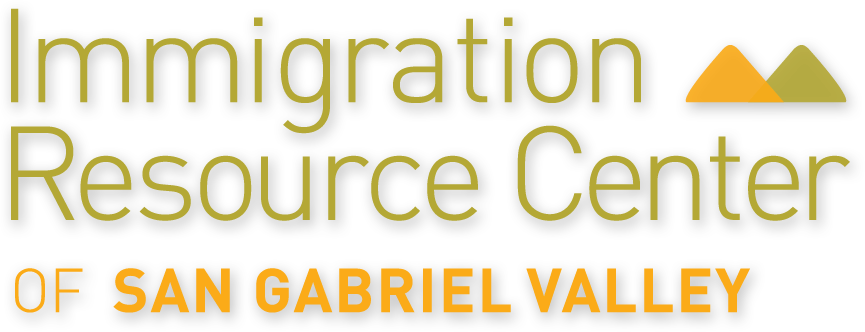

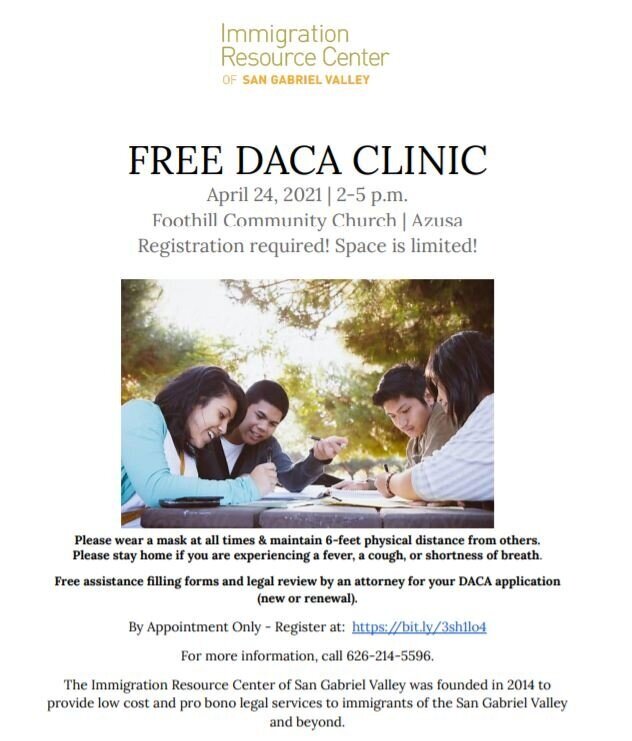
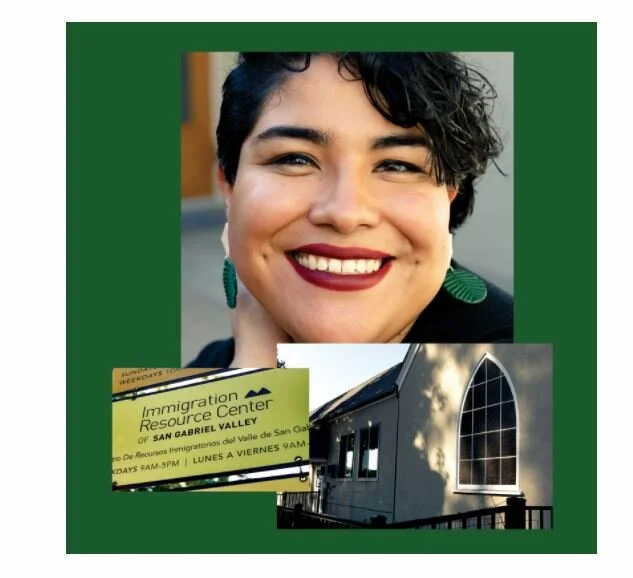






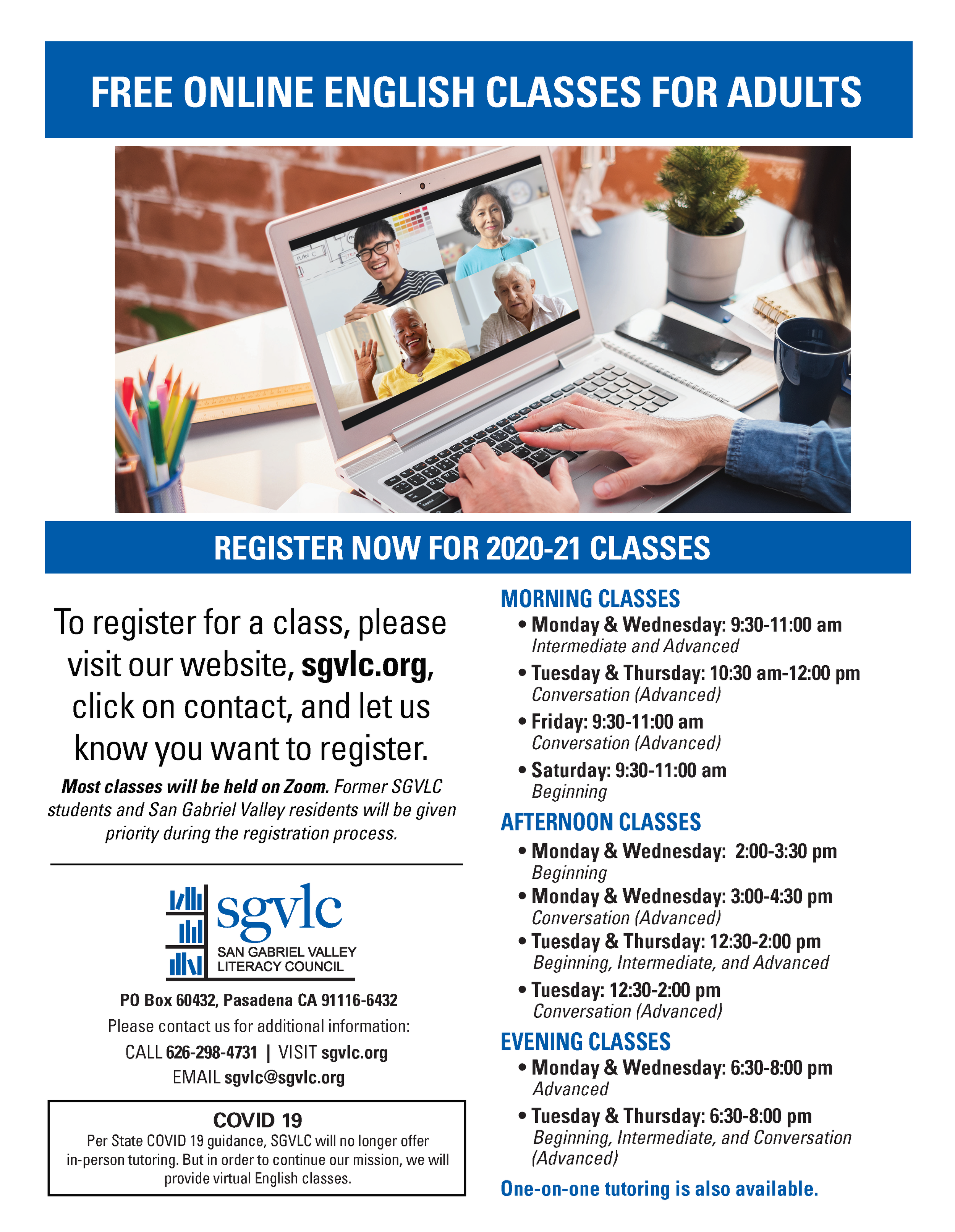
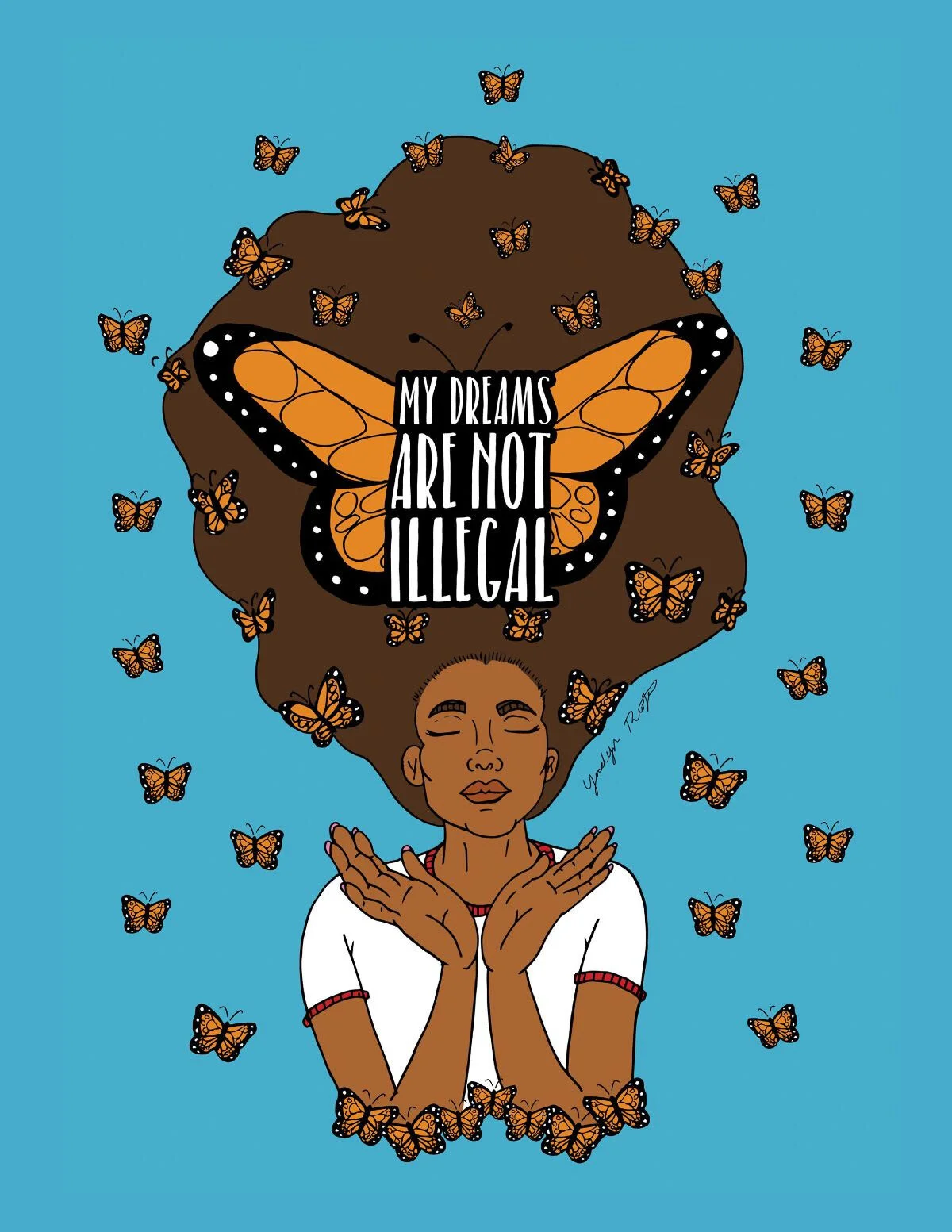

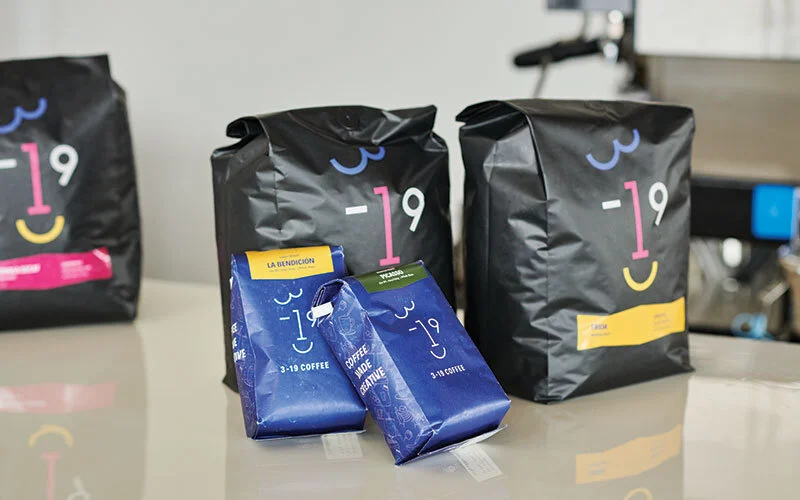


![[LIVESTREAM] The Immigration Conversation: A voters guide to immigration platform and policies](https://images.squarespace-cdn.com/content/v1/5c55e43de8ba44b3f7ffaa7c/1600286675239-EYTTN08W2PBS7PLUXO6N/maxresdefault.jpg)
